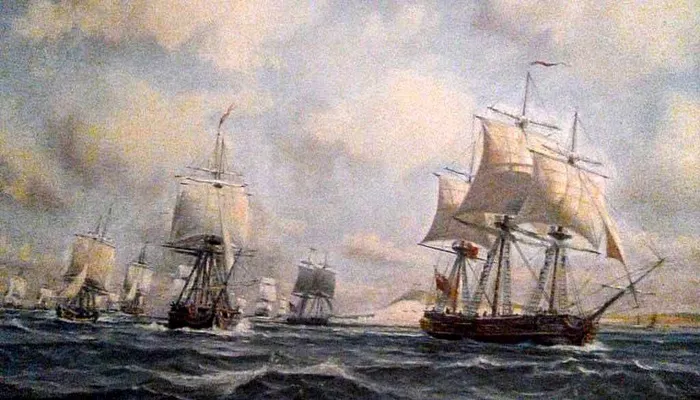What Happened on January 19 in Australian History?
1. Arrival of the First Fleet (1788)
On January 19, 1788, three ships from the First Fleet—Alexander, Friendship, and Scarborough—arrived at Botany Bay, New South Wales. This marked a pivotal moment in Australian history as it was part of the British colonization efforts led by Captain Arthur Phillip. The arrival was observed by a large number of Indigenous Australians who gathered on Point Solander to witness the event.
The First Fleet, consisting of eleven ships, set sail from England in May 1787, carrying convicts, marines, and supplies to establish a penal colony. The arrival of the fleet signified the beginning of British settlement in Australia, which would have profound effects on the Indigenous populations and the continent’s future.
2. The Significance of Botany Bay
Botany Bay was initially chosen for settlement due to its natural harbor and resources. However, Captain Phillip soon realized that it was unsuitable for long-term habitation. Following the arrival of the fleet, he explored the surrounding areas and found Port Jackson, which he deemed a more favorable location for settlement.
This decision led to the establishment of Sydney Cove on January 26, 1788, which is now celebrated as Australia Day.The interactions between the British settlers and Indigenous Australians during this period were complex and often fraught with tension. While some initial encounters were peaceful, they set the stage for future conflicts over land and resources as British colonization expanded across Australia.
3. Birth of Rex Ingamells (1913)
On January 19, 1913, Rex Ingamells was born in Orroroo, South Australia. He would later become a prominent poet and educator known for his contributions to Australian literature. Ingamells is particularly noted for his works that reflect on Australian identity and landscape.
His poetry often drew inspiration from his surroundings and experiences growing up in rural Australia. Ingamells’ literary legacy continues to influence contemporary Australian poetry and serves as a reminder of the rich cultural tapestry that has emerged from Australia’s diverse history.
4. Cyclone Hits Cooktown (1907)
A significant natural disaster occurred on January 19, 1907, when a tropical cyclone struck Cooktown, Queensland. The cyclone resulted in severe damage and claimed six lives.
This event highlighted the vulnerability of coastal communities in Australia to extreme weather events.The impact of this cyclone prompted discussions about disaster preparedness and response strategies in Australia. Over time, such natural disasters have shaped policies related to urban planning, emergency services, and community resilience.
5. Closure of The Argus Newspaper (1957)
On January 19, 1957, The Argus, a prominent newspaper based in Melbourne, published its last edition after more than a century of operation. Founded in 1846, The Argus played a crucial role in informing the public about local and national issues.
Its closure marked the end of an era in Australian journalism.The decline of The Argus was attributed to various factors including competition from other newspapers and changing media consumption habits among Australians. Its closure reflected broader trends within the media landscape during the mid-20th century as television began to dominate public discourse.
6. Sir Joh Bjelke-Petersen Resigns (1987)
Another notable event occurred on January 19, 1987, when Sir Joh Bjelke-Petersen, Premier of Queensland for nearly two decades, resigned from his position amid growing political pressure and allegations of corruption.
His resignation marked a significant shift in Queensland politics.Bjelke-Petersen’s tenure was characterized by controversial policies and an authoritarian style of governance that often clashed with civil liberties advocates. His departure opened the door for reforms within Queensland’s political landscape and contributed to changing attitudes toward governance in Australia.
Conclusion
January 19 stands out as a date rich with historical significance in Australia. From early colonial encounters that laid the groundwork for modern Australia to cultural milestones like the birth of Rex Ingamells and pivotal political changes such as Bjelke-Petersen’s resignation, each event reflects broader themes within Australian history—colonization, cultural identity, natural disasters, media evolution, and political transformation.These events not only shaped Australia’s past but also continue to influence its present-day society. Understanding these historical moments provides valuable insights into Australia’s journey as a nation and its ongoing development.

